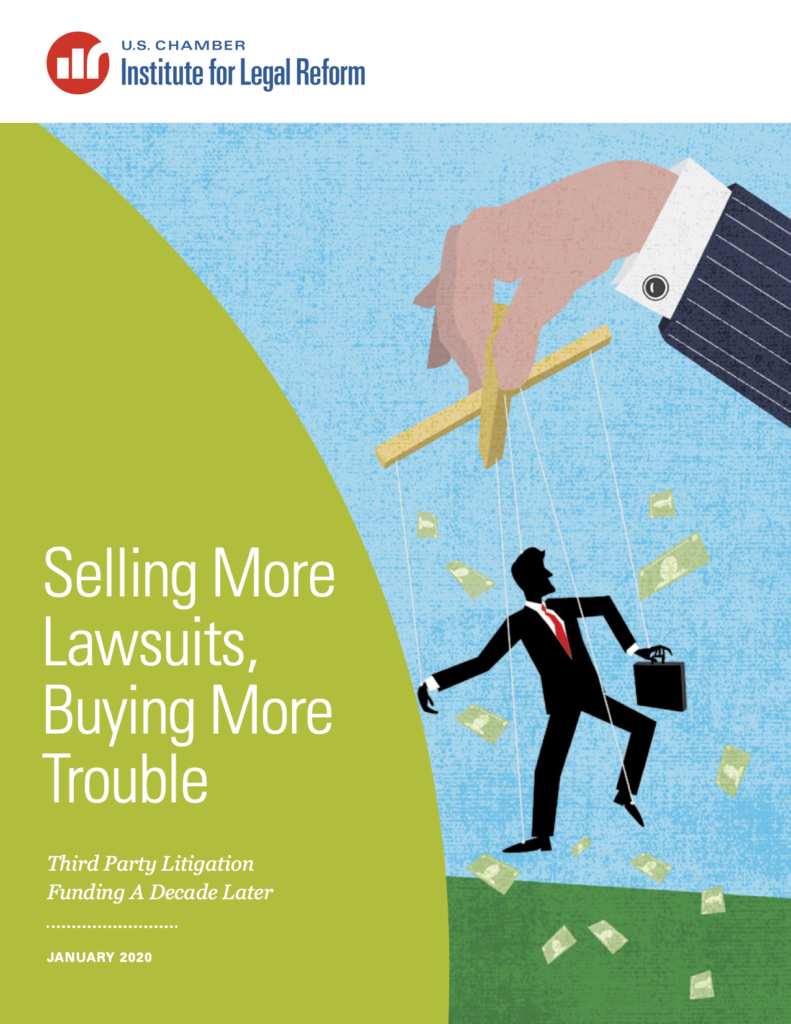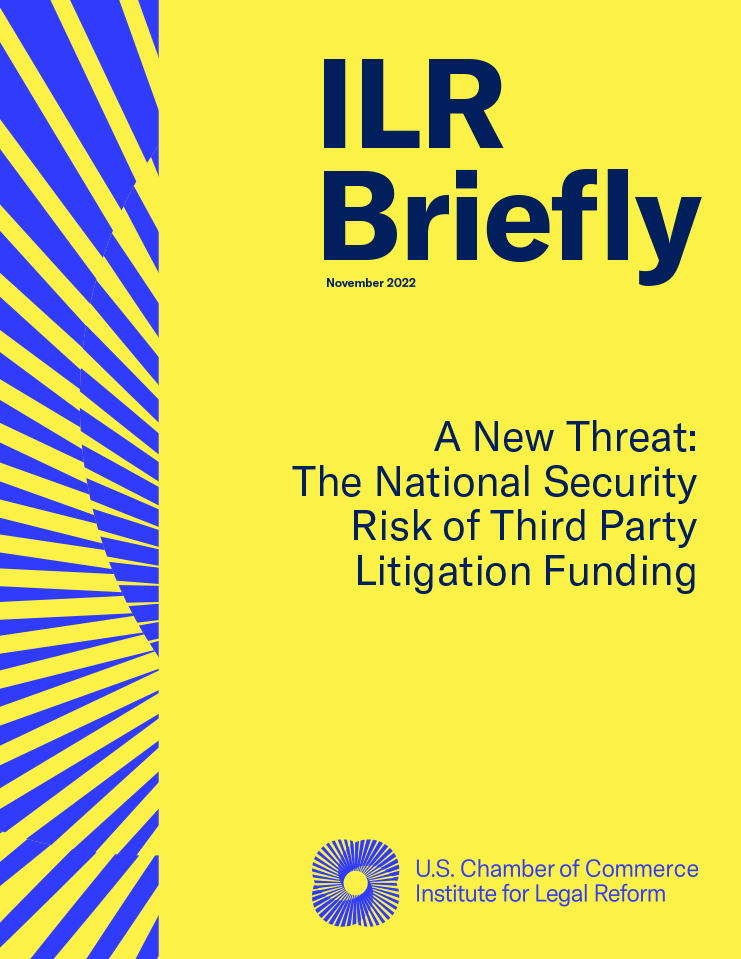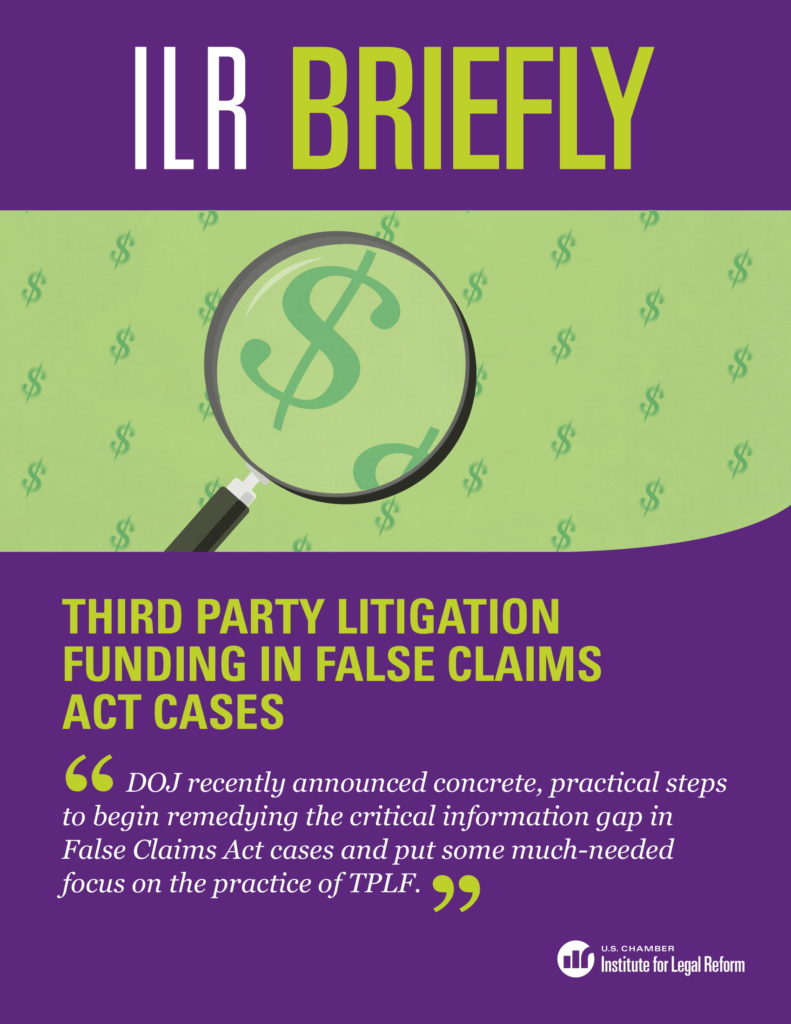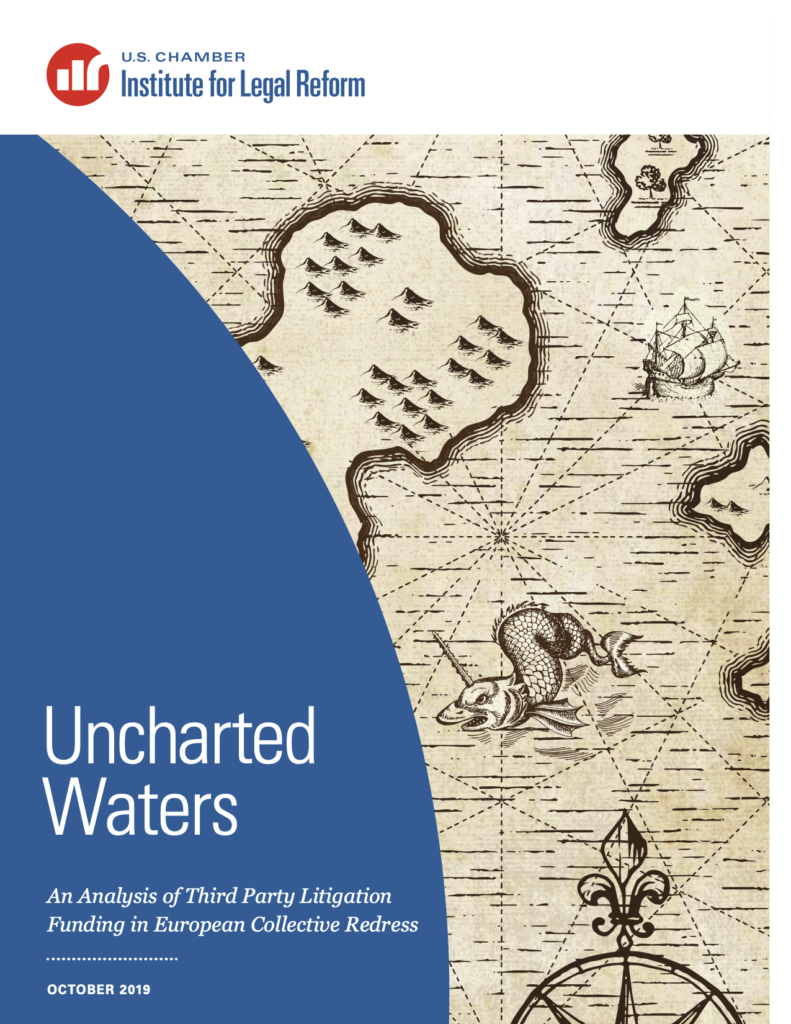Litigation funders perpetuate the myth that their industry is a benign force that enhances access to justice, suggesting there’s “nothing to see here” when it comes to third-party litigation funding (TPLF). However, this narrative is far from the truth, as this research reveals several concerning patterns:
- Control Over Litigation: Funders often exercise significant control over litigation, contrary to their claims of being passive investors. This control threatens the professional independence of lawyers, and disrupts the loyalty that counsel owe to their clients.
- Foreign Influence and National Security Risks: TPLF poses national security risks. There are concerns about foreign adversaries using TPLF to undermine the interests of the U.S. and allied countries, gain access to sensitive information, or evade sanctions.
- Financial Impact on Litigants: TPLF often results in significant portions of settlements and judgments being siphoned off by funders, leaving actual claimants with greatly reduced recoveries after attorneys’ fees are also deducted.
The research also shows that there is increasing concern from policymakers about the injurious effects of TPLF on claimants, businesses, and civil justice systems in general. Indeed, the paper documents numerous examples of policymakers calling for or taking action to implement safeguards around TPLF in courts, in the states, on Capitol Hill and overseas. The report’s major takeaway is this: TPLF poses significant challenges to the proper functioning of civil justice, and after years of advocacy by ILR and others, policymakers are increasingly confronting the problem.




